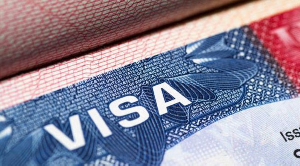Mali has announced that United States citizens visiting the West African nation will now be required to pay a visa bond of up to $10,000. The move comes as a direct response to a similar measure implemented by Washington under the Trump administration, which required certain foreign nationals to post refundable visa bonds before entering the US.
According to Mali’s Ministry of Foreign Affairs, the decision aims to ensure “reciprocity” after the US “unilaterally imposed” the visa bond policy. The new requirement applies to both business and tourist visas, marking a sharp escalation in tensions between Bamako and Washington.
The US Embassy in Mali stated that the bond reflects the US government’s commitment to “protecting America’s borders and safeguarding national security.” However, Malian officials have described the move as unjust and politically motivated.
The diplomatic row comes amid attempts by both nations to rebuild ties. In July 2025, a US delegation visited Mali to explore counterterrorism cooperation and discuss potential economic partnerships, particularly in the gold and lithium sectors. Despite these discussions, relations remain strained following Mali’s 2021 military coup, which brought Gen Assimi Goïta to power.
Goïta’s government has since distanced itself from Western allies, expelling French forces and forging closer military and economic ties with Russia. The controversial Wagner Group, now operating under Russia’s Africa Corps, has replaced French troops in Mali’s counterinsurgency operations.
The tensions reflect a wider diplomatic rift between the US and parts of West Africa. Just last week, Burkina Faso’s military government refused to accept US deportees, accusing Washington of “blackmail.”
Analysts say Mali’s visa bond policy highlights growing frustration among African nations over perceived Western pressure and interference in domestic affairs. Whether this move will deter US travelers or prompt diplomatic dialogue remains to be seen.

